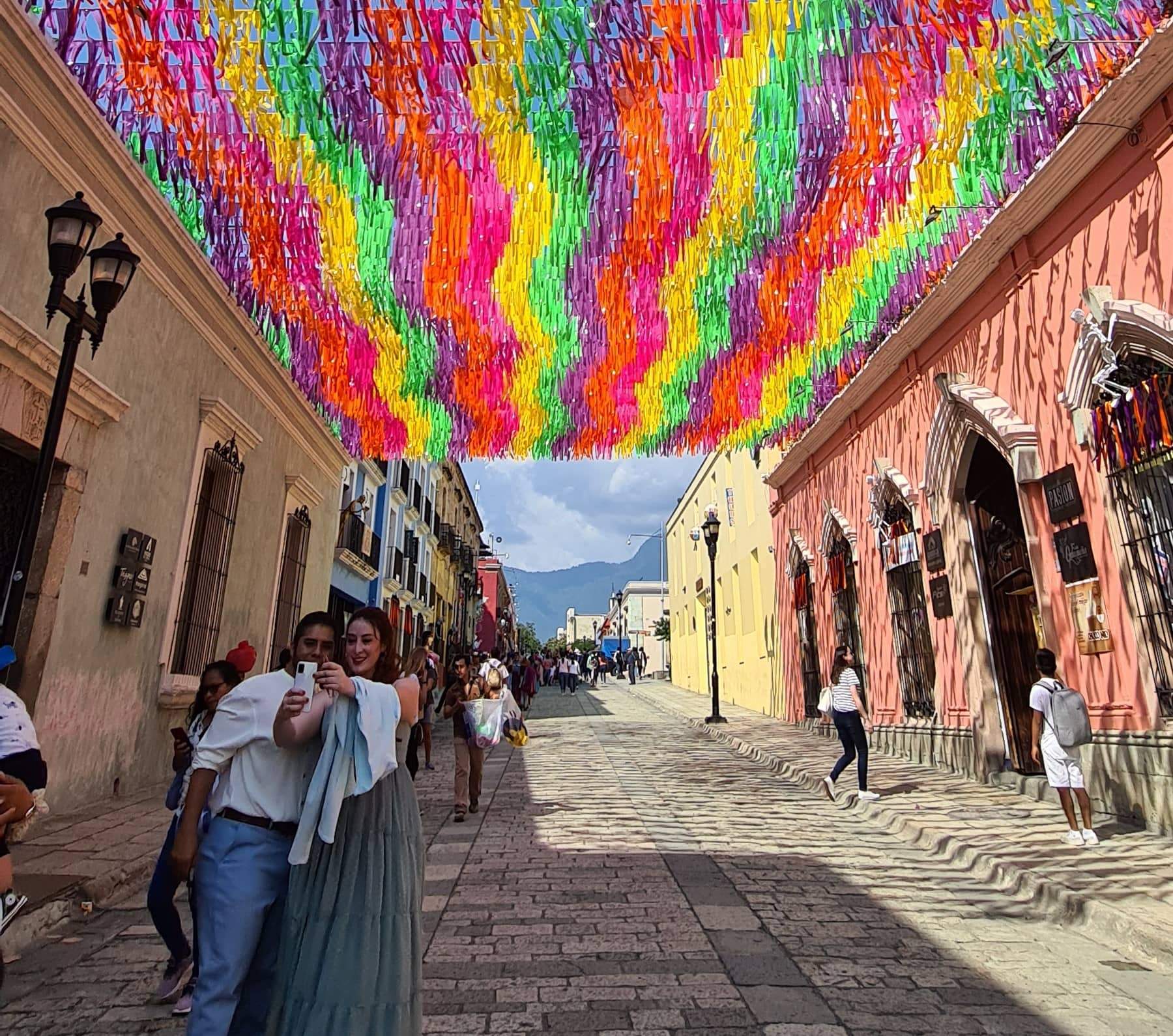
I don’t need to talk a lot about global warming and the urgent need to take care of the planet!
Recycling, secondhand purchases, vegan alimentation…
Every day, we implement many eco-responsible actions to protect the Earth.
But weirdly, when we are traveling, we stop to take care.
It is a big mistake because the tourism industry is one of the most polluting.
Here are 10 actions for responsible tourism that you can implement from now!
CONTENTS
- Buy a reusable bottle
- Choose responsible hotels
- Take a tote bag
- Use a menstrual cup or panty
- Opt for train or bus
- Be a featherweight traveler
- Purchase locally
- Avoid busy places
- Fight against waste
- Leave the animals alone
1. Responsible Tourism: Buy a reusable bottle
I don’t need to repeat it. You already know it: there is too much plastic!
However, it makes no sense to eliminate it from our lives. It is a material that hides everywhere. Contact lenses, bathtubs, windows, there is plastic in them!
Nevertheless, we can cut off its use and so, its production. It is a real intake to do so because it is not only plastic itself that contaminates but the entire production process.
In countries where tap water is drinkable, you can fill the reusable bottle with tap water instead of buying plastic bottles.
It is also a good alternative in some countries where they give you drinks in plastic bottles or glasses. I think of, for example, coco water in Rio or Sao Paulo, which sometimes is not served directly in the coconut.
Another good idea is to take with you a reusable cup. It is perfect to grab your coffee at your favorite coffee place!
2. Choose responsible hotels
Nowadays, more hotels are into responsible tourism. Even if they take only a few actions, it is better than nothing!
Before booking directly on Booking or Hostelworld, visit their websites, GoogleMyBusiness accounts, or Instagram page to check if they commit to environmental protection.
If you prefer staying at AirBnbs or Homestays, you can check the places’ descriptions. Some hosts might have set up compost or asked to use electricity wisely.
You can think that there are too small actions, but again, it is better than nothing! So next time you book a place to stay, think of investigating a little 😉
3. Responsible Tourism: Take a tote bag with you
It happened to all of us! You are out, and suddenly, you remember that your fridge is empty. You have to go to the supermarket to buy some food, but you don’t have any bags. So you end up buying a plastic bag at the checkout.
To avoid these situations, take a tote bag with you. These fabric bags can be easily folded and need little room in the pocket of your trousers, your purse, or your backpack.
And it is also useful to gather up the litter, put your jacket in when it is hot, for purchases, put your wet swimming suit in it, and more. To make it short, you will use it a lot!
4. Use a menstrual cup or period panties
As persons with periods, we use many, many, many pads during our lives. Obviously, it creates much waste, without speaking that we don’t really know what it is inside.
Menstrual cups or period panties are the solution. You can use them for years and during all your cycle.
I use period panties made by a Spanish company Mis bragas menstruales.
And I am happy. It is best if you have between 3 or 6 panties or thongs that correspond to the different moments of your menstrual flow. So you don’t have to wash them too often. We know that going to the laundry is not easy when traveling!
Today, there are many brands on the market. They offer cute panties in many different styles and colors. You will find one model that you like, for sure!

5. Responsible Tourism: Opt for train or bus
We all know it: planes are bad for the planet. But they can be the only way for some very faraway rides.
So to compensate, you can switch to less contaminated means of transportation (and enjoy slow traveling) when it is possible. Trains and buses are the most logical options for traveling inside a country and crossing the border between two countries.
You can also carpool or hitchhike, depending on your budget and the country where you are.
Many people think traveling by train or bus is boring and not comfy, but, in many countries, they are very comfortable means of transportation.
Moreover, it is perfect for enjoying the landscape, appreciating the distances, and meeting new people.
Travelers on trains and buses tend to communicate more than people on planes so you will have a great time surrounded by locals!
6. Be a featherweight traveler
As I just said, planes pollute a lot, but they can be the only way to discover Vietnam or Hungary.
The good news is that you can shorten your ecological footprint. To do so, reduce the weight of your luggage.
Indeed, the more a plane is loaded, the more it consumes fuel. According to AirFrance, one kilo less onboard could save 69 tons of CO2 emissions a year.
7. Responsible Tourism: Purchase locally
One of the advantages of traveling is to taste local products and discover new flavors.
Don’t go to big chains, but to small restaurants where local products are cooked for the clients.
Moreover, you will help local commerce and put money into the community. It is a virtuous circle since you improve the region’s economy and, by consequence, the life conditions of the inhabitants.
8. Avoid busy places
It was the same issue before. The majority of tourists used to go to the same place to discover the same monuments or beaches.
With Instagram, this phenomenon is increasing, and it is not rare to see wannabe Instagrammers queuing to get a picture in an Instagramable spot.
So many people at the same time, in the same place, are a risk for the planet in the middle or long term.
Indeed, the massive presence of travelers, also called overtourism, has perverse impacts on the ecosystems’ weakening, the cultural patrimony degradation, intensified water contamination, and so on.
The planet is huge, so go for green tourism and visit remoted places, go to less trendy bars and neighborhoods, and get lost in the countryside.
9. Fight against waste
Every year, tons of food end up in our garbages. When we travel, it is not easy to monitor our consumption. However, we can try to adopt some concrete behaviors.
If you can cook at your place, plan your meals in advance to not buy too much food. If you still have some products, give them to the other persons living in your Airbnb or the other hostel travelers.
Don’t order too many dishes at a restaurant, especially when you are in an all-you-can-eat. Only order what you are sure to could eat.
If you don’t finish everything, ask for a takeaway bag, even if it is not the best solution since you will use new packaging.
Use apps such as Too Good To Go to buy cheap dishes or products that will finish in the restaurants’ or shops’ garbage. This app is available in many countries. In others, there is, for sure, a similar app.
10. Leave the animals alone
Unfortunately, animal abuse is still a thing. It is essential to avoid any activity that involves captive animals.
The good news is that every day, news initiatives permit us to get closer to the animals respecting them.
When you are in a place where free animals live, such as birds in squares, monkeys in the park, or turtles on beaches, remember you don’t need to touch, feed, scare or stress them getting the closest possible for an Instagram story!
These 10 actions are easy to implement for more responsible tourism.
It is almost nothing for you, but it is very benefic for the planet, the local communities, the animals, the biodiversity, and more.
What are your actions for more responsible tourism?
Do you like this blog post? Share it on Pinterest!



post a comment cancel reply
This site uses Akismet to reduce spam. Learn how your comment data is processed.




